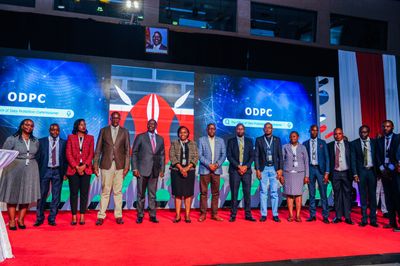In the midst of the fight against record-high levels of electronic waste (e-waste), the European Commission has published regulations. The Ecodesign for Sustainable Products Regulations (ESPR) stimulate the development, design, and manufacture of electronic products that are more durable, reusable, and recyclable.
These regulations are in keeping with the EU's overall climate goals.
“The objective of the Commission’s Eco Design proposal is to make sustainable products the norm on the EU market and reduce their overall environmental and climate impacts. The ‘take-make-use-dispose’ model can be avoided, and much of a product’s environmental impacts is determined at the design stage.”
E-waste production in the world totals 53,6 million metric tons per year. The continent of Afrika is responsible for 2,9 million metric tons of this trash. Heavy metal elements including lead, cadmium, and chromium are commonly found in discarded electrical gadgets. These metal products can cause major health and environmental risks when in close touch or when poisonous gases are inhaled from them.
According to the Commission, this larger Ecodesign approach will lead to greater energy and resource independence as well as reduced pollution, as well as "economic potential for innovation and job development," particularly in sectors like remanufacturing, maintenance, recycling, and repair.
Impact on Afrikan Imports
One of the European bloc’s largest traders from Afrika is South Africa. The EU imports a total of $18,9 billion from South Africa. Imports include electronic equipment ($107,84M), nuclear reactors & boilers ($1,.93B), vehicles ($4,13B) and aeronautic equipment ($22,29M).
Under the new regulation directive, all these industries along with their products must complie with new standards.
Enforcement will be undertaken by market surveillance agencies in each member state. Energy efficiency, as well as material efficiency, durability, reparability, upgradeability, and recycling features, will be affected by the criteria.
Digital Product Passport
The establishment of a Digital Product Passport to preserve vital data to increase traceability around goods and facilitate repair/recycling by standardizing the information that product makers must offer is another aspect of the EU's strategy for improved Ecodesign guidelines.
The Commission states that:
"Digital Product Passports will be pushed out for all regulated items." "Product information can also take the shape of 'performance classes' for example, ranging from 'A to G' to make it easier to compare items, which might be shown on a label." This would function similarly to the internationally recognized EU Energy Label, and might be used for a repairability score, for example."
— By Bataung Qhotsokoane







